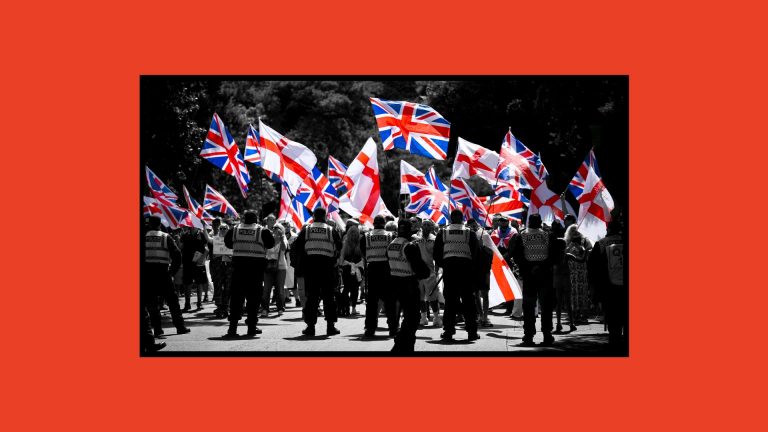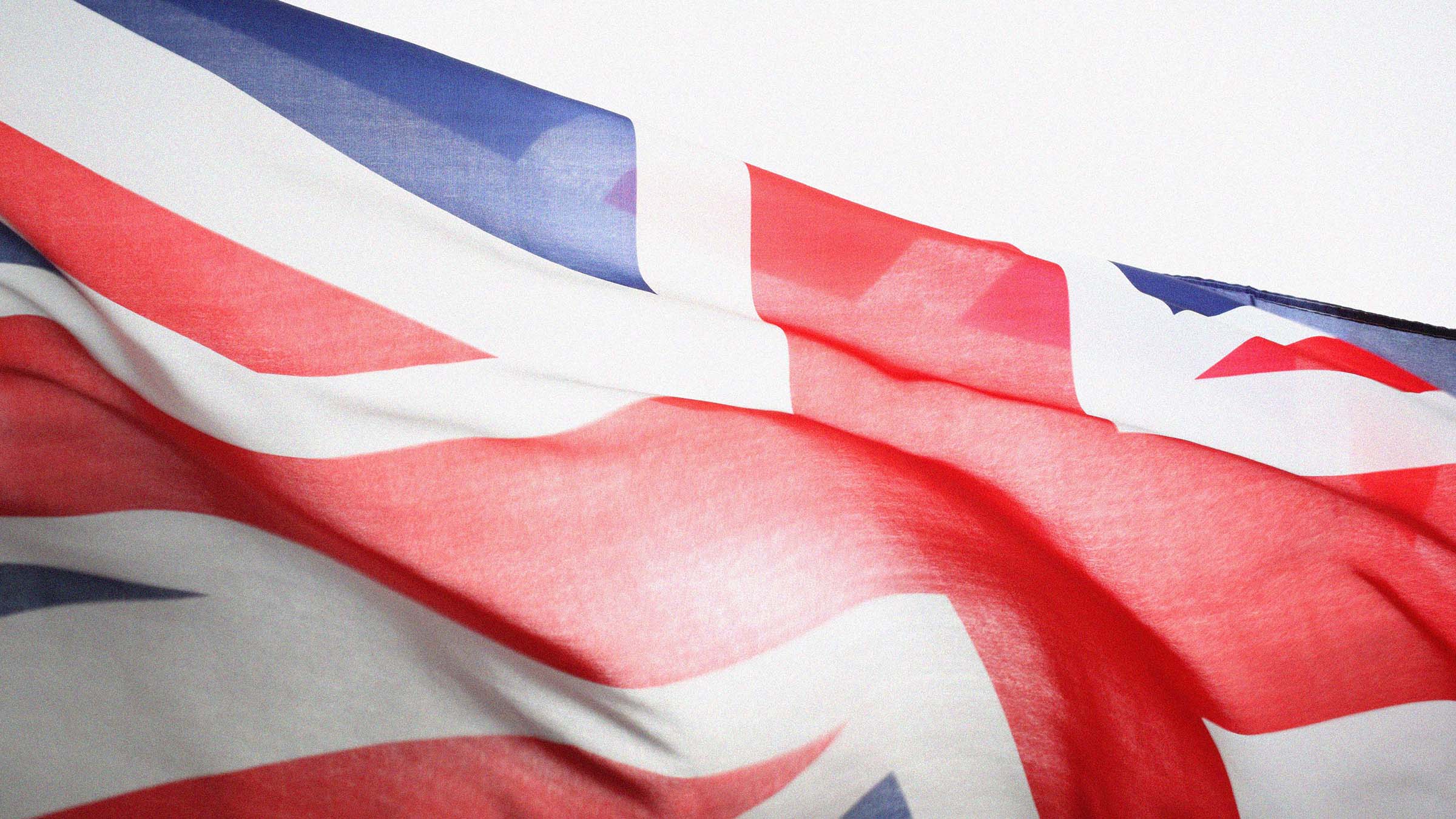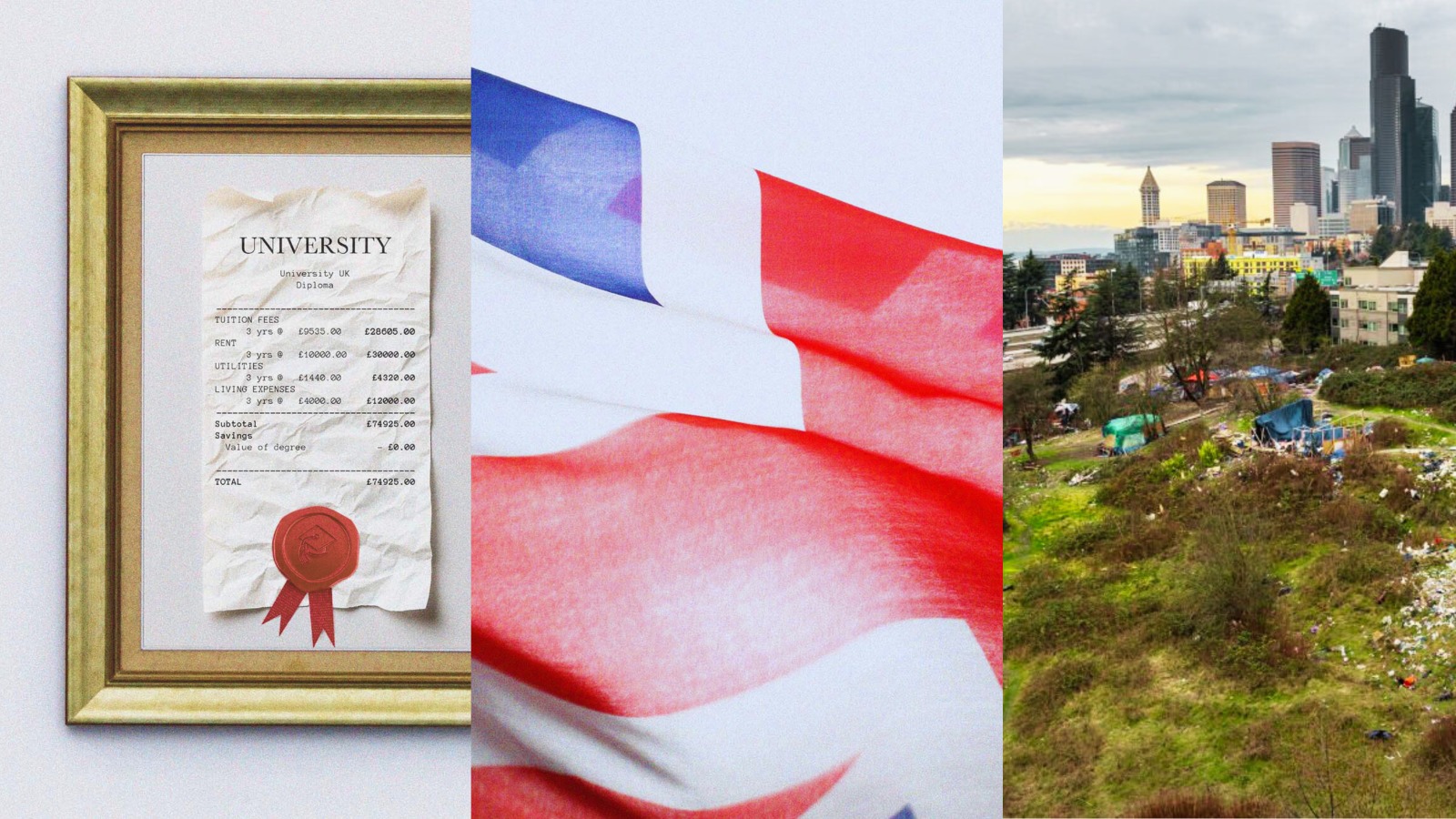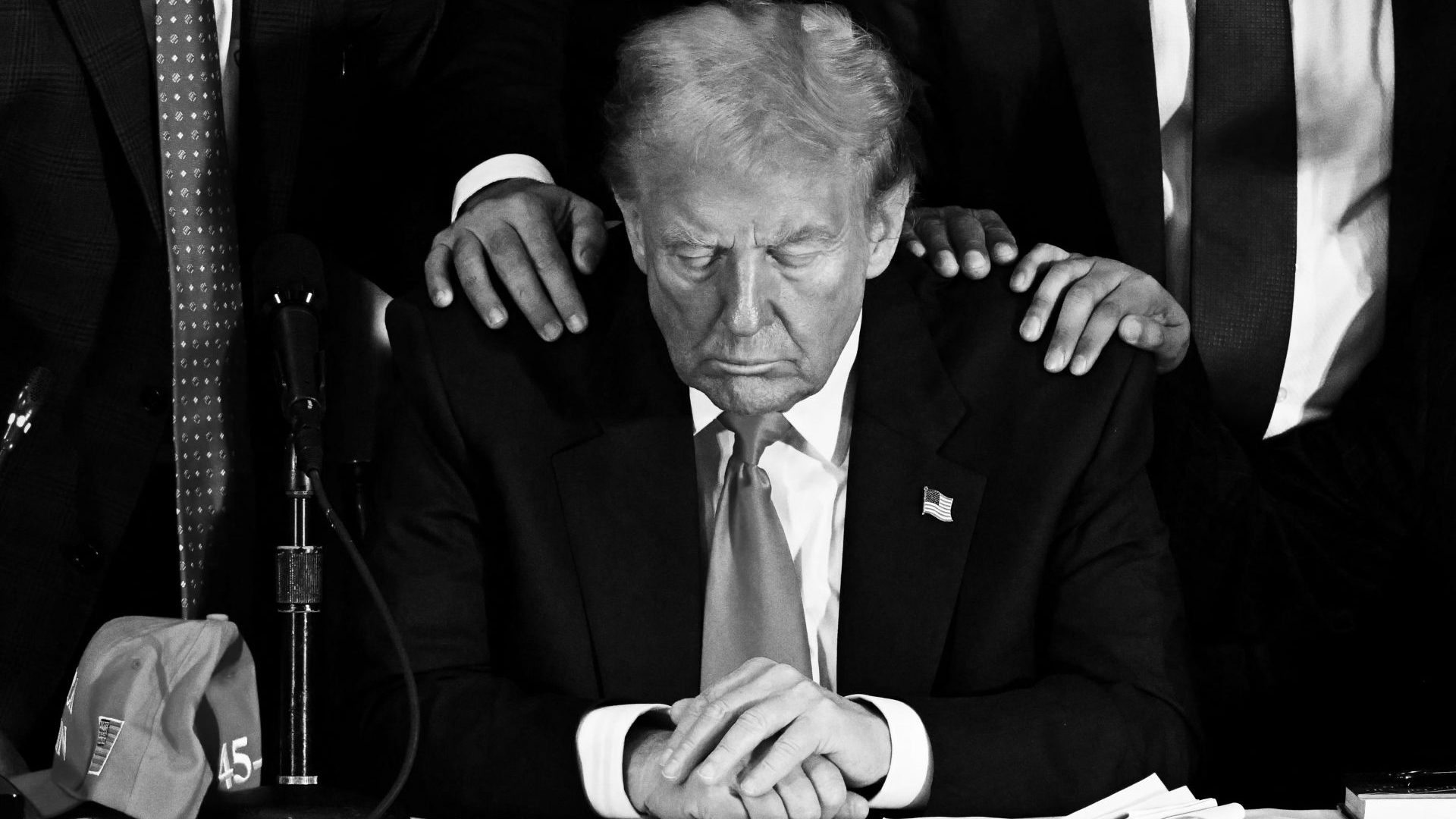For anyone who grew up near London in the 1970s, as I did, the union jack has sinister associations. As a young teenager, I was handed National Front propaganda on the streets of Bexley, and it always carried that emblem, alongside slogans like “Send them Back!”
On August 13, 1977, around 500 National Front supporters tried to march from New Cross to Lewisham. Their motley phalanx bristled with union jacks on flagpoles that could double as weapons. Around a quarter of the Metropolitan police force showed up, massively outnumbering them. They came with riot shields and horses, expecting trouble, and they got it.
A National Front leader, the neo-Nazi Martin Webster, had declared: “We believe that the multi-racial society is wrong, is evil, and we want to destroy it.” Someone who uses the power of three, a well-known device in rhetoric, with such a toxic message was very dangerous. This was a tinderbox. The flag-wavers were fanning the flames.
They were met by over 4,000 counter-protesters. Some anti-fascists brought weapons. They were prepared for a clash. The march was a deliberate provocation, and the counter-protesters were there to meet it, as their fascist-fighting forebears had been when they fought Oswald Mosley’s blackshirts at the 1936 Battle of Cable Street.
Many police officers were injured by missiles aimed at marchers. There were over 200 arrests and some serious scuffles. The relatively small band of National Front supporters was eventually escorted by police through the deserted streets of Lewisham.
Flags are powerful symbols. In some countries, the act of burning one is not just unpatriotic but criminal. In the US, destruction of the stars and stripes is protected as a symbolic speech act under the First Amendment – or at least it was until Donald Trump’s intervention on Monday. In China, Germany, and India, desecrate a national flag and you could end up in prison.
A simplistic approach exploited by racists is to suggest that flying a flag is a simple display of patriotism. We’re hearing that repeatedly as groups across the UK are buying up union jacks and England flags and fixing them to lampposts and fences, even painting them on manhole covers and buildings.
Suggested Reading


Britain’s real immigration scandal is not the one you think
Nice try. It’s true that national flags have conventional meanings – they are symbols that represent particular countries and are used in official ceremonies. But the meaning of a communicative act that involves a flag is not fixed by the literal meaning of the symbols employed. Meaning is determined by use, as Ludwig Wittgenstein and other philosophers have stressed.
Context and the expectation of how symbols will be understood play their part, and words, flags, and other symbols mean very different things in different contexts. Or rather, people mean things with them.
Someone says, “Nice day!” If they say it when the sun is shining, chances are they’re using the words in their conventional dictionary-defined sense, and they mean what the words literally mean. But say the same words when the sky is overcast, and they mean the opposite. The speaker knows you’ll recognise that.
A Cross of St George flag flown during the European Women’s Championship signalled support for a great national team. For a few weeks, it even looked as if the flag might be reclaimed from fascists. This August, though, days after aggressive anti-migrant protests outside hotels where asylum seekers are housed, fly that flag from a lamppost and the gesture has a very different, far nastier meaning.
There’s a viral movement co-ordinating just this kind of pseudo-patriotic display, and there’s a reason they are doing it now. Anti-migrant protesters love their flags. Displaying them signals to one another what they stand for and what they are against. Claims that this is just inclusive patriotism are about as convincing as Bill Clinton’s declaration, “I did not have sexual relations with that woman”.
The concept of implicature, introduced by the philosopher HP Grice, is useful here. Implicature is the act of implying a meaning beyond the literal meaning of the words or other symbols we use. For anti-immigrants, festooning lampposts with national flags this August is mostly implicature signalling a “no foreigners in my town” stance – let’s not pretend otherwise.
Flag-flyers are calling out to fellow xenophobes. The literal meaning of the flags, something like “I’m proud to be English, and am proud to be proud” is a cover. For those already targeted by near-violent protests, the vile message is obvious: a cross of St George or a union jack flown today means “You’re not welcome here” – much as it did in 1977.




